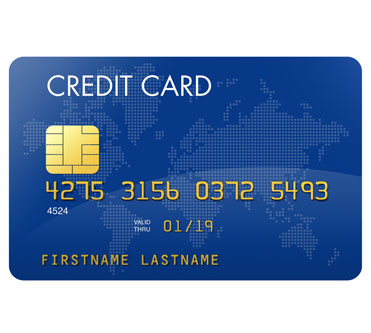By the far the most important thing to remember about credit cards is this: Avoid carrying a balance. For anyone new to using credit cards, this probably seems counter-intuitive, since the whole idea of the credit card is to charge things that you pay for later. That's true, but only up until your monthly payment due date. The card provider effectively lends you their money for free from the time you make a purchase until your monthly bill comes due. After that due date, they'll start charging you interest on that loan, and it's almost always a gigantic amount of interest. You avoid that by always paying off your balance each month, so it never carries over.
The card provider would like that gigantic interest, of course, so they use little tricks to try to get you to pay it. Your statement usually says something like "Minimum payment due", which is a small amount like $10 or $20. Don't be fooled...if you charged anything more than that (and you almost certainly did, if you used the card at all), then you'll be hit with interest charges on the remainder of your balance. Another trick is charging interest immediately on certain transactions, not even waiting for the monthly due date. The most common is cash advances (i.e. using your credit card at an ATM). It's best to use only debit cards at ATMs, never credit cards. Sometimes they'll send you what look like blank checks and invite you to use them for whatever you like, but those usually follow the same rules as a cash advance and will get hit with interest right away. Some cards charge you either interest or extra fees on international transactions, so be careful when traveling abroad or order online from international sites.
That all sounds pretty grim so far, I know. So why bother with a credit card at all? There are some good reasons (listed in approximate order of importance):
- Convenience. Physically, it's easier to carry around the cards than it is to deal with cash. Checks are another option, but a lot of places won't take those any more. If you do any online shopping, a credit card is the simplest method of payment, and usually the fastest.
- Buff Up your Credit Report. Credit cards show up on your credit report. That can be good or bad, of course, but if you use a credit card regularly and pay it off every month, that shows up as a plus on your credit report. It won't erase any problems you may have had in the past, but it's a good mark to have on that report. This is especially good for young folks who have no real credit history. A few years of good credit card use looks a whole lot better than a blank report. One note of caution: Make sure you use the card regularly. An unused card doesn't help out your report, and might even hurt it.
- Emergencies. Having the credit available for unexpected expenses is a good safety net. You don't want to use it very often, because of that gigantic interest, but it's better than nothing. If you do have to put some emergency bills on your credit card, make paying that balance off a priority as soon as possible.
- Rewards. Credit card providers really want you using their card, enough so that they're willing to provide benefits. Everyone's heard of cash back bonuses, or the various airline cards that give you frequent flyer points. I tend to stick with the cash-back cards, even though the reward amounts are generally smaller, because I'm not limited to using the rewards on any specific thing. There's plenty of options if you'd rather get flights or hotels or rental cars, though.
If you don't have a credit card, how do you go about finding one? It's pretty easy to fill out applications online these days, and I suspect most people get a bunch of credit card offers in the mail regularly. (I certainly do, and not all of them even have my name right.) But if those don't work for you, you can also go to your local bank or credit union. If you have a savings/checking account, they'll almost certainly be willing to give you a low-limit credit card. And once you have a card and use it for a while, more offers will almost certainly follow.
I have one card of each major type (Visa, Mastercard, Discover, American Express), so I don't have to worry about ending up somewhere that won't accept a particular type of card. I rotate which one I use by the simple method of always taking the front one out of my wallet, and replacing it in the back. It's probably overkill, to be honest. You can get by fine with just one card in most situations.
Credit cards are a useful tool, as long as you pay attention to your balance and pay it off every month. Use them carefully, and enjoy the bonus rewards!
